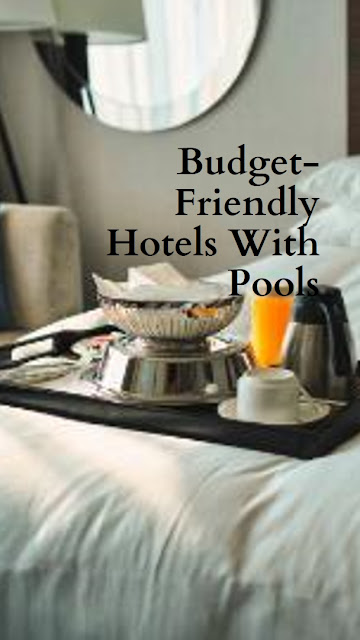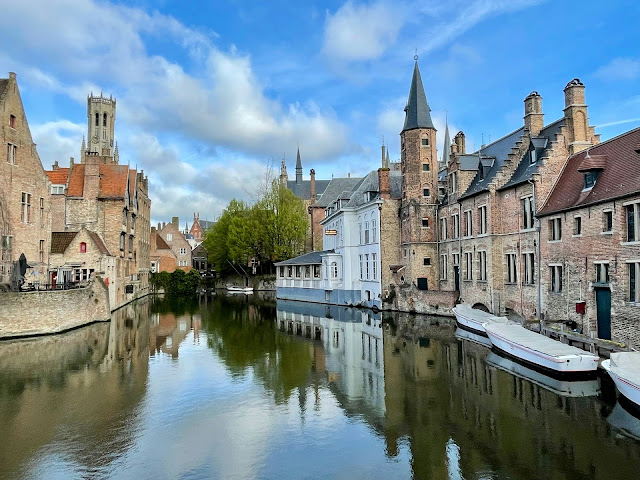Explore France's Best: 20 Must-Visit Places and What Makes France Famous
France is a country located in Western Europe. It is the largest country in the European Union and has a rich history and culture. France is known for its cuisine, fashion, art, architecture, literature, wine, and much more.
 |
| Montmartre, Paris, France |
Paris, the capital city of France, is famous for its iconic landmarks such as the Eiffel Tower, the Louvre Museum, Notre-Dame Cathedral, and the Arc de Triomphe.
Best places to visit in France
Paris – The City of Light is a must-visit for its iconic landmarks, museums, and cuisine.
The Palace of Versailles – The epitome of French grandeur and opulence.
Mont Saint-Michel – A unique and picturesque monastery on an island off the Normandy coast.
The French Riviera – A glamorous and sun-kissed stretch of coastline, home to St. Tropez and Cannes.
Bordeaux – A beautiful city famous for its wine and architecture.
Loire Valley – A region known for its historic chateaus and stunning gardens.
Marseille – A bustling port city with a rich history and vibrant culture.
Strasbourg – A charming city with a unique blend of French and German cultures.
The Dordogne – A region of stunning natural beauty, famous for its castles and prehistoric cave art.
Nice – A beautiful city on the French Riviera with a mix of Italian and French culture.
Annecy – A charming town nestled in the French Alps, known for its stunning lake.
Lyon – A food lover's paradise with a rich history and beautiful architecture.
Avignon – A walled city with a rich history and a famous medieval bridge.
Normandy – A region known for its beautiful coastline, charming towns, and historic D-Day sites.
Toulouse – A lively city with a rich history, a beautiful old town, and great food.
The Alps – A stunning mountain range with world-class skiing and breathtaking views.
Carcassonne – A medieval walled city with a rich history and stunning views.
Reims – A city in the Champagne region known for its stunning cathedral and champagne houses.
Brittany – A region of rugged coastlines, charming fishing villages, and Celtic heritage.
Nantes – A vibrant city with a rich history and a great mix of old and new architecture.
What France is famous for?
Food and Wine - French cuisine is known for its richness, variety, and complexity, and it has been widely regarded as one of the world's finest. French wines, particularly Bordeaux and Champagne, are also famous worldwide.
Fashion - France has long been considered a center of fashion and style, and is home to some of the world's most famous fashion designers, including Chanel, Dior, and Yves Saint Laurent.
Art and Culture - France has a rich cultural heritage that includes iconic works of art such as the Mona Lisa and the Palace of Versailles, as well as literary giants like Victor Hugo, Emile Zola, and Marcel Proust.
Landmarks and Monuments - France is home to many famous landmarks, such as the Eiffel Tower, Notre-Dame Cathedral, and the Palace of Versailles.
Language - French is one of the world's most widely spoken languages, and is also the official language of many international organizations.
Sports - France is known for its passion for sports, particularly football (soccer), rugby, and cycling.
History - France has a rich history that spans thousands of years, from the ancient Gauls to the French Revolution and beyond.
A comprehensive travel guide to France
Overview:
- France is a diverse and culturally rich country located in Western Europe. It is known for its art, fashion, cuisine, history, and picturesque landscapes.
- The country offers a wide range of experiences, from the romantic streets of Paris to the sun-soaked beaches of the French Riviera and the charming countryside of Provence.
- France is home to numerous iconic landmarks, world-class museums, historic sites, and stunning natural wonders.
Best Time to Visit:
- France can be visited year-round, but the best time depends on your preferences. Spring (April to June) and fall (September to October) offer pleasant weather, fewer crowds, and vibrant landscapes.
- Summer (June to August) is popular but can be crowded, especially in touristy areas. It's an ideal time for beach destinations.
- Winter (December to February) is perfect for skiing in the French Alps and experiencing Christmas markets.
Top Destinations:
- Paris: Explore the capital city's iconic landmarks like the Eiffel Tower, Louvre Museum, Notre-Dame Cathedral, and Champs-Élysées.
- French Riviera: Visit glamorous cities like Nice, Cannes, and Monaco, known for their beaches, luxury resorts, and vibrant nightlife.
- Provence: Discover the lavender fields of Valensole, explore charming villages like Gordes and Roussillon, and visit Avignon and its famous Palais des Papes.
- Loire Valley: Explore the enchanting châteaux (castles) like Château de Chambord and Château de Chenonceau, known for their architectural beauty.
- Normandy: Visit the historic D-Day landing beaches, Mont Saint-Michel (a medieval abbey on a rocky island), and the picturesque town of Honfleur.
- Bordeaux: Experience world-class wines in the vineyards of Bordeaux and explore the city's historic center, a UNESCO World Heritage site.
Cultural Experiences:
- Cuisine: Indulge in French gastronomy, including classics like baguettes, croissants, cheese, wine, escargots, and crème brûlée.
- Art and Culture: Visit world-renowned museums like the Louvre, Musée d'Orsay, and Centre Pompidou in Paris, and explore art galleries and exhibitions throughout the country.
- Festivals: Experience cultural celebrations like Bastille Day (July 14th), Cannes Film Festival (May), and the Tour de France (July).
Practical Tips:
- Language: While French is the official language, English is commonly spoken in tourist areas. However, learning a few basic French phrases can enhance your interactions.
- Transportation: France has an extensive and efficient transportation network, including trains (SNCF), regional buses, and domestic flights.
- Currency: The official currency is the Euro (€). Credit cards are widely accepted, but it's always helpful to have some cash for smaller establishments.
- Safety: France is generally safe for travelers, but it's advisable to take usual precautions, such as keeping an eye on belongings and being aware of your surroundings.
- Etiquette: Politeness is valued in French culture. Greeting people with a "Bonjour" (hello) or "Bonsoir" (good evening) and using "Merci" (thank you) and "S'il vous plaît" (please) are appreciated.
FAQs
Do I need a visa to visit France?
- Visitors from many countries, including the United States, Canada, the United Kingdom, and Australia, can enter France for tourist purposes without a visa for up to 90 days within a 180-day period. However, it's always advisable to check the visa requirements based on your nationality before traveling.
What is the best time to visit France?
- France can be visited year-round, as each season offers unique experiences. The spring (April to June) and fall (September to October) months generally have pleasant weather and fewer crowds. Summer (July and August) is popular but can be busy, especially in tourist hotspots. Winter (December to February) is ideal for skiing in the French Alps.
What are the main airports in France?
- France has several international airports, including Paris Charles de Gaulle Airport (CDG), Paris Orly Airport (ORY), Nice Côte d'Azur Airport (NCE), and Lyon-Saint Exupéry Airport (LYS). These airports have frequent connections to various cities around the world.
How can I get around in France?
- France has an excellent transportation system. You can travel between cities by train using the French national railway service (SNCF) or regional trains. Buses and domestic flights are also available for longer distances. Within cities, public transportation systems, such as the metro, buses, and trams, are convenient options.
Is it necessary to speak French to visit France?
- While French is the official language of France, you can get by with English in most tourist areas, hotels, and popular attractions. However, it's always appreciated when visitors make an effort to learn a few basic French phrases. Learning a few greetings and polite expressions can go a long way in connecting with locals.
What are some must-visit places in France?
- France offers a wide range of attractions. Some popular destinations include Paris (Eiffel Tower, Louvre Museum), the French Riviera (Nice, Cannes, Monaco), the Loire Valley (châteaux), Provence (lavender fields), Normandy (D-Day beaches, Mont Saint-Michel), and Bordeaux (wine region).
Is it customary to tip in France?
- Tipping is not mandatory in France, as a service charge is usually included in the bill at restaurants and cafes. However, it's common to leave small change or round up the bill as a gesture of appreciation for good service. In upscale restaurants or for exceptional service, a tip of around 5-10% is appreciated.
What is the sales tax (VAT) rate in France?
- The value-added tax (VAT) in France is known as "TVA" (Taxe sur la Valeur Ajoutée). The standard rate is 20% for most goods and services. However, reduced rates of 10% and 5.5% apply to certain items like food, hotel stays, and transportation.
Remember to check the latest travel advisories and guidelines before your trip to France, as conditions and requirements may change.



Comments
Post a Comment
It's easy to leave a comment on our blog – anyone with a Google account can do it. We invite you to share your experiences by leaving a comment as well.